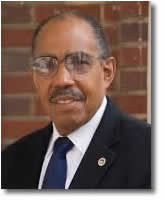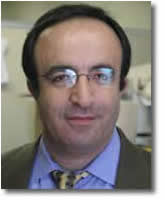 Lawrence (Lonnie) Berger is the Director of the Institute for Research on Poverty and Vilas Distinguished Achievement Professor and Ph.D. Program Chair at the School of Social Work at the University of Wisconsin–Madison. His research focuses on the ways in which economic resources, sociodemographic characteristics, and public policies affect parental behaviors and child and family wellbeing. He is engaged in studies in three primary areas: (1) examining the determinants of substandard parenting, child maltreatment, and out-of-home placement for children; (2) exploring associations among socioeconomic factors (family structure and composition, economic resources, household debt), parenting behaviors, and children's care, development, and wellbeing; and (3) assessing the influence of public policies on parental behaviors and child and family wellbeing. To address these topics, he utilizes a variety of statistical techniques to analyze data from a range of large-scale datasets. His work aims to inform public policy in order to improve its capacity to assist families in accessing resources, improving family functioning and wellbeing, and ensuring that children are able to grow and develop in the best possible environments. This research has been funded by the National Institutes of Health (National Institute of Child Health and Human Development), U.S. Department of Health and Human Services (Administration on Children and Families), Doris Duke Charitable Foundation, MacArthur Foundation, Casey Family Services, Wisconsin Child Abuse and Prevention Board, and Wisconsin Department of Children and Families.
Lawrence (Lonnie) Berger is the Director of the Institute for Research on Poverty and Vilas Distinguished Achievement Professor and Ph.D. Program Chair at the School of Social Work at the University of Wisconsin–Madison. His research focuses on the ways in which economic resources, sociodemographic characteristics, and public policies affect parental behaviors and child and family wellbeing. He is engaged in studies in three primary areas: (1) examining the determinants of substandard parenting, child maltreatment, and out-of-home placement for children; (2) exploring associations among socioeconomic factors (family structure and composition, economic resources, household debt), parenting behaviors, and children's care, development, and wellbeing; and (3) assessing the influence of public policies on parental behaviors and child and family wellbeing. To address these topics, he utilizes a variety of statistical techniques to analyze data from a range of large-scale datasets. His work aims to inform public policy in order to improve its capacity to assist families in accessing resources, improving family functioning and wellbeing, and ensuring that children are able to grow and develop in the best possible environments. This research has been funded by the National Institutes of Health (National Institute of Child Health and Human Development), U.S. Department of Health and Human Services (Administration on Children and Families), Doris Duke Charitable Foundation, MacArthur Foundation, Casey Family Services, Wisconsin Child Abuse and Prevention Board, and Wisconsin Department of Children and Families. Charles L. Betsey, professor emeritus of economics at Howard University, serves as Co-Principal Investigator of the Howard University Center on Race and Wealth and as an instructor with the Graduate School's Preparing Future Faculty program. He served on the Howard faculty for twenty-five years and was chair and interim chair of the economics department from 1990–1996 and 2003–2005, respectively. From 2009 to 2012 he served as Interim Dean of the Graduate School of Arts and Sciences. Prior to joining the Howard faculty, he held staff appointments in various government and private research organizations, including the Office of Economic Opportunity, the U.S. Department of Labor, and the National Research Council.
Charles L. Betsey, professor emeritus of economics at Howard University, serves as Co-Principal Investigator of the Howard University Center on Race and Wealth and as an instructor with the Graduate School's Preparing Future Faculty program. He served on the Howard faculty for twenty-five years and was chair and interim chair of the economics department from 1990–1996 and 2003–2005, respectively. From 2009 to 2012 he served as Interim Dean of the Graduate School of Arts and Sciences. Prior to joining the Howard faculty, he held staff appointments in various government and private research organizations, including the Office of Economic Opportunity, the U.S. Department of Labor, and the National Research Council.
Dr. Betsey's research and publications cover various topics in labor economics and public policy. He has served as principal investigator on projects funded by the National Science Foundation, the U.S. Agency for International Development, the U.S. Department of Education, and the U.S. Department of Labor. His current research includes studies of the impact of economic growth on occupational segregation and the dynamics of student loan debt for minority students.
Dr. Betsey earned his B.A. in Economics and Spanish Literature and his Ph.D. in Economics from the University of Michigan.
 Rodney D. Green has served as a professor of urban economics at Howard University since 1977 and, since 1995, as Founder and Executive Director of the Howard University Center for Urban Progress, a unit designed to strengthen the University's urban research, program evaluation, community service, and community development agenda at local, federal, and international levels. He served as Chair of the Howard University Department of Economics from 2008–2015, and continues to serve as co-Principal Investigator of the Howard University Center on Race and Wealth. He has authored three scholarly books (including a study of racial and economic segregation in public housing) and over 50 journal articles. He has served as Principal Investigator in over 65 externally funded projects with a value of over $32 million. These projects generally provide evidence-based approaches to alleviating poverty and racial disparities. Dr. Green has been the lead evaluator of HOPE VI CSSP programs for the District of Columbia, as well as for HOPE VI CSSP programs in Virginia and Florida. He also provided needs assessments of public housing residents as part of the New Communities projects at Park Morton, Lincoln Heights, and Richardson public housing developments for the Office of the Mayor of the District of Columbia. Dr. Green received his undergraduate degree in politics and economics at Yale University (1970) and his M.A. (1976) and Ph.D. (1980) degrees in economics at the American University.
Rodney D. Green has served as a professor of urban economics at Howard University since 1977 and, since 1995, as Founder and Executive Director of the Howard University Center for Urban Progress, a unit designed to strengthen the University's urban research, program evaluation, community service, and community development agenda at local, federal, and international levels. He served as Chair of the Howard University Department of Economics from 2008–2015, and continues to serve as co-Principal Investigator of the Howard University Center on Race and Wealth. He has authored three scholarly books (including a study of racial and economic segregation in public housing) and over 50 journal articles. He has served as Principal Investigator in over 65 externally funded projects with a value of over $32 million. These projects generally provide evidence-based approaches to alleviating poverty and racial disparities. Dr. Green has been the lead evaluator of HOPE VI CSSP programs for the District of Columbia, as well as for HOPE VI CSSP programs in Virginia and Florida. He also provided needs assessments of public housing residents as part of the New Communities projects at Park Morton, Lincoln Heights, and Richardson public housing developments for the Office of the Mayor of the District of Columbia. Dr. Green received his undergraduate degree in politics and economics at Yale University (1970) and his M.A. (1976) and Ph.D. (1980) degrees in economics at the American University. Sarah Halpern-Meekin is an assistant professor in the Department of Human Development & Family Studies, School of Human Ecology at the University of Wisconsin–Madison. She is a sociologist who studies romantic relationships and welfare policy using a mixed-methods approach. Her current research includes examining how premarital experiences are associated with later relationship outcomes; how government-funded relationship education programs are experienced by their participants; and how changes to the welfare state, like the rise of the Earned Income Tax Credit, affect low-income families.
Sarah Halpern-Meekin is an assistant professor in the Department of Human Development & Family Studies, School of Human Ecology at the University of Wisconsin–Madison. She is a sociologist who studies romantic relationships and welfare policy using a mixed-methods approach. Her current research includes examining how premarital experiences are associated with later relationship outcomes; how government-funded relationship education programs are experienced by their participants; and how changes to the welfare state, like the rise of the Earned Income Tax Credit, affect low-income families.
Dr. Halpern-Meekin was a postdoctoral fellow at the National Center for Family and Marriage Research at Bowling Green State University (2009–2010), and earned her B.A. in politics at Brandeis University (2002) and Ph.D. in sociology and social policy at Harvard University (2009).
 Haydar Kurban is a professor of economics at Howard University. He joined Howard as an assistant professor in 2011. As an urban economist, Dr. Kurban has worked on research projects in areas of equity in local education spending, distribution of local education property taxes, economic impacts of urban renewal programs, economic impacts of payday lending, economics of natural disasters, gentrification and urban sprawl.
Haydar Kurban is a professor of economics at Howard University. He joined Howard as an assistant professor in 2011. As an urban economist, Dr. Kurban has worked on research projects in areas of equity in local education spending, distribution of local education property taxes, economic impacts of urban renewal programs, economic impacts of payday lending, economics of natural disasters, gentrification and urban sprawl.
Dr. Kurban's research papers have been published in Regional Science Urban Economics, Economics of Education Review, National Tax Journal, Public Finance Review, Review of Black Political Economy, Cityscape, Economic Development Quarterly, and International Journal of Critical Infrastructure, and in other academic outlets as book chapters, reports and discussion papers. He has advised Ph.D. students and M.A. students as main advisor and thesis committee member.
Dr. Kurban's research projects have been funded by NSF, HUD, HHS and DHS through awards and subcontracts.